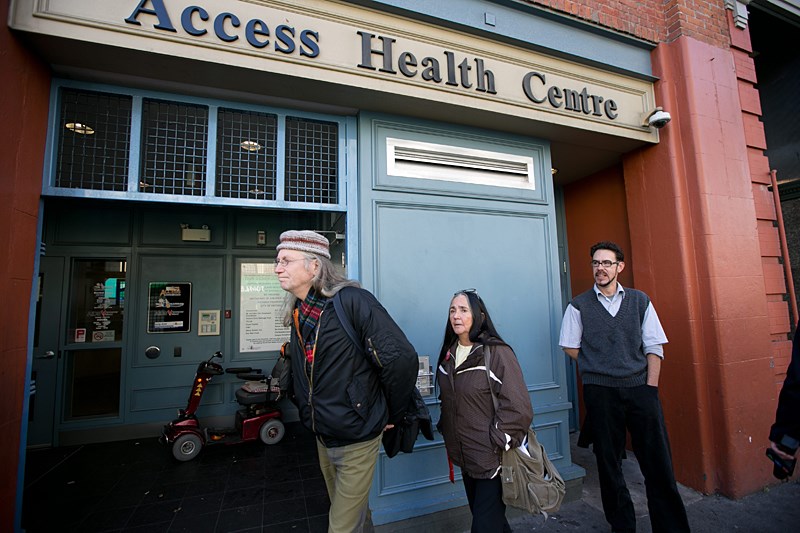When the city wakens and businesses open, many of the homeless who sleep on the streets and in shelters disperse among a network of service providers. It might be a simple breakfast at Our Place, a visit to the library or community centre, an employment program or legal advice centre.
More than 25 of these organizations — including shelters, drop-in centres, thrift stores and advocacy groups — are open for the public to visit on Thursday.
The regional open house and events around the city are part of the sixth annual Homelessness Action Week, organized by the Greater Victoria Coalition to End Homelessness.
“The idea is to raise awareness about homelessness and services, and the people who spend their lives doing this work,” said Andrew Wynn-Williams, executive director of the coalition. “The root of the issue right now is we don’t have enough affordable housing.”
According to a study released by the group last month, the average rent for a bachelor apartment in Victoria is $700 — a hefty amount for a low-wage earner or someone on social assistance living on $600 to $1,000 per month. The city’s vacancy rate is less than one per cent, and housing wait-lists are alarmingly long, Wynn-Williams said.
In addition to the open houses, the coalition will launch a speaker’s bureau of four Victorians who have experienced homelessness.
Hilary Marks, 53, was homeless in the early 1990s while trying to leave an abusive relationship.
“I would go back and forth to shelters. It was very difficult because I was afraid he’d hunt me down,” Marks said. After a violent incident while she was pregnant, her partner went to jail and she got the help she needed to start over.
Marks credits low-income housing for stability in tough times. She still struggles with the bills but makes time to help others.
“I’ve always been an advocate,” she said. “It’s a difficult job to be homeless, especially for women. You don’t sleep properly, you’re stressed, it eats at your self-esteem, and you’re in the constant struggle to survive.”
Michael Woestenburg, 39, is still homeless. He’s speaking about his experiences to help battle the stigma.
“It can happen to anyone,” he said. Eight years ago, he was diagnosed with conversion disorder, a neurological disease with symptoms similar to Parkinson’s disease. He lost his job in a shipping and receiving department and then, when a social assistance mix-up met with a landlord conflict, he found himself homeless.
He has been staying in transitional housing at Rock Bay Landing and has completed the Ready to Rent program. He hopes to get his own place and devote more time to his art.
“Just having space and learning my rights as a tenant has been really helpful,” he said.
For more information, go to victoriahomelessness.ca.



